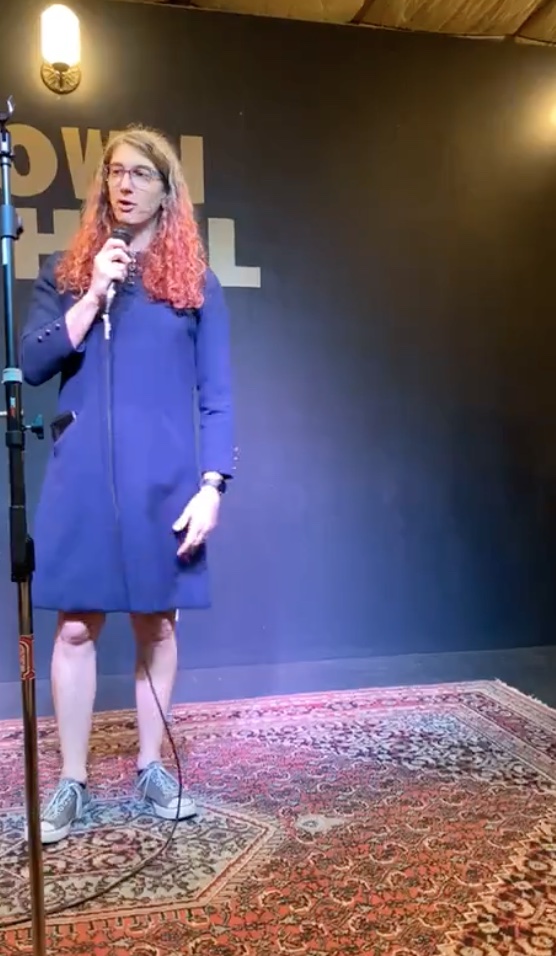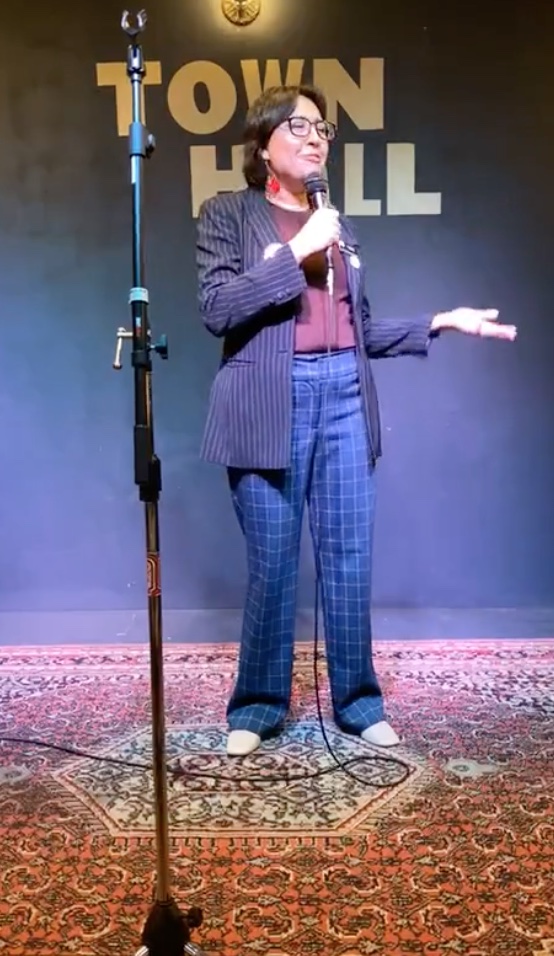On Tuesday night, LGBTQ advocates gathered at Town Hall Collaborative, a Denver community space and bar, for the “Legislative Kickoff” of One Colorado, the state’s leading organization for LGBTQ rights.

“We don’t want to be reactive anymore, we have to be proactive,” said Nadine Bridges, Executive Director of One Colorado, during the event.
“Right now, in 2024, and we’re not even at the end of January, we have over 329 anti-LGBTQ bills according to the ACLU,” Bridges said. “It is unbelievable. Right here in the state of Colorado, we have 12 anti-LGBTQ initiatives happening: eight parental rights, and four anti-trans sports initiatives.”

State Rep. Brianna Titone (D-Arvada) spoke of her own sense of fatigue, as hundreds of similar bills have been introduced each year since 2020. In 2023 alone, 510 anti-LGBTQ bills were introduced across the country, shattering the record set by 2022. 2024 seems likely to follow that trend.
“I look at the news, I follow Erin Reed,” Titone said, referencing trans journalist Erin Reed’s project to track all anti-LGBTQ legislation across the country. “She is always telling us about all the anti-trans stuff and, you know, we’re lucky that we have her to keep track of all this stuff and listen to all the hearings to tell us all the things that are happening. Because it’s hard listening to all those things happening all the time.”
One upcoming attack on LGBTQ liberties may be coming directly from the Colorado Republican Party. Earlier this month, Darcy Schoening, formerly a co-chair of the El Paso County Moms for Liberty chapter, announced she had joined the state GOP as Director of Special Initiatives, and that the party would run a ballot initiative to ban gender-affirming care for minors in Colorado. Schoening also mentioned that the initiative was backed by Matt Walsh, a national far-right pundit known primarily for his inflammatory stances on LGBTQ people.

“All of us, and everyone looking online here, make sure that you are doing your part,” Titone continued. “That’s something we can all do. I’m not going to see all those people peddling those petitions, but we all can keep an eye out for them, and when we find those bad petitions out there, and call them out for what they are, and let people know, ‘That’s a bad petition, don’t sign it.’”
Each speaker talked at length about plans to advance LGBTQ rights in Colorado during the 2024 session and beyond.
Bridges referenced U.S. Supreme Court Justice Clarence Thomas’ statement, made following the fall of Roe v. Wade in 2022, that the same precedent could be used to take down Obergefell v. Hodges, which guarantees marriage equality for same-sex couples. While Colorado leans strongly blue now, that wasn’t always the case, and an older amendment could jeopardize some gay marriages in the state if Obergefell falls.
“In the state of Colorado we have Amendment 43,” Bridges explained to the audience. “… Amendment 43 basically says that marriage is between one man and one woman. If Obergefell falls, what would happen is that in this state, marriage would no longer be legal for same-sex marriages. If you are already married because of the Respect for Marriage Act, you can stay married, but if you are not married, there’s a whole lot of issues.”
Bridges referenced a potential ballot measure by One Colorado, currently in the works for 2024, that could rectify this.
More potential legislation for 2024 was discussed: Titone mentioned that state Rep. Lorena Garcia (D-Westminster) was working on a bill that would allow trans people with felonies to have their legal names changed, as well as another bill by herself and Stephanie Vigil (D-Colorado Springs) providing for non-legal name changes for students in Colorado schools.
“If Elon Musk just changed the name of the company that he bought, he wants everybody to call it that,” Titone quipped, “… It’s not Twitter, now we have to call it X, because that’s the right thing to do.”
Titone said Vigil was also introducing a bill to hold a study on gender-affirming care in Colorado – concerning both longtime residents, and those who fled to Colorado following the passage of anti-trans bills in their own states.

Elizabeth Velasco (D-Glenwood Springs) spoke to the crowd on an intersectional awareness of how issues like pollution and the current migrant crisis impacting Denver also impact the LGBTQ community. Velasco also teased two bills: one that would allow students more freedom in what they wear during their graduation ceremonies, and another that would streamline the state’s migrant crisis response to be more like the process for asylum seekers.
“I’ve been fighting for access to clean air and clean water for all, and we know that that’s an LGBTQ issue. I’m also the co-chair of the Latino caucus, and we have been very involved with the response to the migrant crisis. And we know that that’s an LGBTQ issue. … We have to realize that all our issues are intersectional, and we have to show up for each other.”
Members of the state Legislature’s LGBTQ caucus in attendance included: state Reps. Titone, Velasco, Vigil, Jennifer Parenti (D-Longmont), and state Sen. Sonya Jaquez Lewis (D-Lafayette). Also attending, though not themselves part of the LGBTQ caucus, were state Reps. Bob Marshall (D-Highlands Ranch), Meghan Lukens (D-Eagle), and Tim Hernandez (D-Denver).
The event was streamed on Instagram, and can be viewed here.



